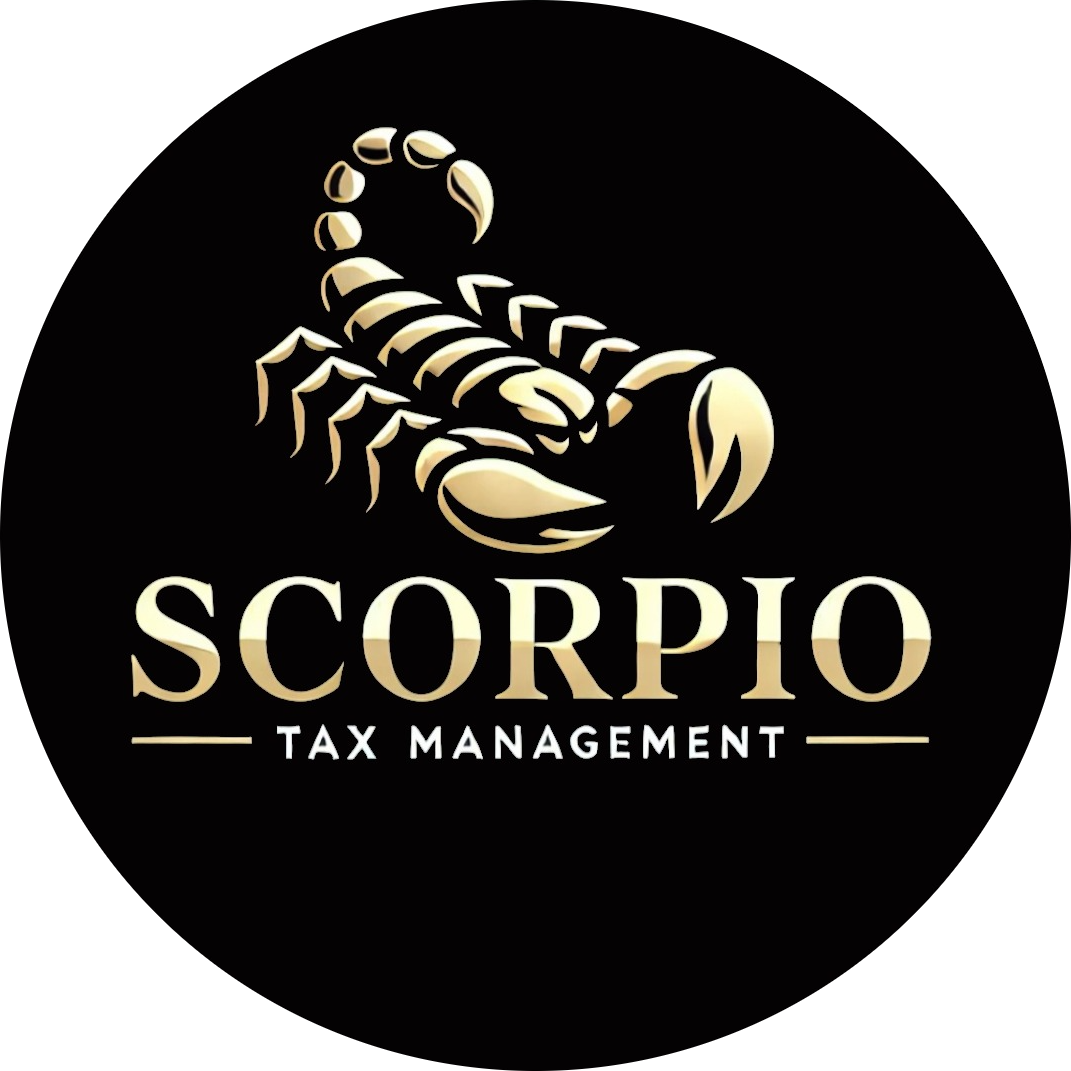Tax Corrections: Your Guide to Amended Tax Returns
Have you discovered an error on a filed tax return? Did you miss a crucial tax deduction, overlook a tax credit, or realize you reported incorrect income? Don't panic. The IRS understands mistakes happen, and you have options to fix them: amended tax returns and superseded returns.
Write to Tax@S-CorpTax.com, or call (858) 779-4125.
An amended tax return (specifically IRS Form 1040-X, Amended U.S. Individual Income Tax Return) is your official way to correct a previously filed federal income tax return after the original due date (including extensions).
Amended Returns
Common Reasons to File an Amended Tax Return:
Incorrect Income Reporting: You received a late W-2, 1099, or K-1, or simply forgot to report certain income. This is a frequent reason to amend taxes and crucial for IRS accuracy.
Missed Tax Deductions or Credits: Perhaps you overlooked eligible tax write-offs, qualified for a tax credit you didn't claim (like the Child Tax Credit, Earned Income Tax Credit, or education credits), or discovered new deductible expenses. Claiming missed deductions can significantly reduce tax liability or result in a tax refund.
Change in Filing Status: You filed as Single but should have been Head of Household, or perhaps Married Filing Separately instead of Jointly (or vice versa due to life changes like marriage or divorce). Correcting filing status impacts your tax bracket and eligibility for various benefits.
Errors in Dependent Information: You mistakenly claimed a dependent you weren't eligible for, or conversely, forgot to claim an eligible dependent.
Correcting Math Errors (Sometimes): While the IRS usually corrects simple math errors, if a complex miscalculation impacts your tax outcome, an amended return may be necessary.
Carrybacks: If you're utilizing certain carryback provisions (like Net Operating Losses for businesses) from a later tax year that affect a prior year's return.
When NOT to File an Amended Return:
For simple math errors that the IRS will automatically correct.
If you forgot to attach a form (like a W-2 or schedule) that the IRS typically requests if needed.
Key Timelines for Amended Tax Returns – The Statute of Limitations
Understanding the statute of limitations for amended tax returns is critical, especially when you're seeking a tax refund.
To Claim a Refund: Generally, you must file Form 1040-X within 3 years from the date you filed your original return or 2 years from the date you paid the tax, whichever is later.
Important Note: If you filed your original return before its due date (e.g., in February for an April 15th deadline), the IRS considers it filed on the original due date.
Overpaid taxes can only be claimed if you meet these strict IRS deadlines.
To Report Additional Tax Due: If your amendment results in you owing more tax, you should file Form 1040-X and pay the additional amount as soon as possible to minimize penalties and interest. The IRS generally has 3 years from the filing date (or due date, if later) to assess additional tax, but there's no time limit if you never filed or filed a fraudulent return.
Processing Times for Amended Returns:
Be prepared for a wait. Unlike original returns, amended returns are often processed manually and can take significantly longer.
The IRS generally states 8 to 16 weeks for amended return processing.
You can track the status of your Form 1040-X using the "Where's My Amended Return?" tool on the IRS website, typically after 3 weeks from mailing.
Implications of Filing an Amended Tax Return:
Potential for Refund: If your changes result in a lower tax liability, you'll receive a tax refund for the difference.
Potential for Tax Due: If your changes result in higher tax liability, you'll owe additional tax and potentially interest or penalties. Paying promptly can mitigate these.
Impact on State Taxes: Remember that changes to your federal tax return often impact your state tax return. You may need to file an amended state tax return as well.
Audit Risk: While filing an amended return itself doesn't automatically trigger an IRS audit, it does draw attention to your return. This is why accuracy and proper documentation are paramount.
What is a Superseded Return?
It's crucial to distinguish an amended tax return from a superseded return.
A superseded return is a complete, corrected tax return filed before the original filing deadline, including any valid extensions.
Key Difference: If you discover an error and file a corrected return before the April 15th deadline (or extended deadline like October 15th for an extended return), it's considered a superseded return. It effectively replaces your previously filed return, making the earlier one null and void.
Form Used: You typically use the same form as your original return (e.g., Form 1040), not Form 1040-X. You simply check a box indicating it's a superseded return if your software supports it.
Benefits: Filing a superseded return can be advantageous because it allows you to make changes (including certain elections that must be made on an original, timely-filed return) without the additional scrutiny or extended processing times associated with amended returns.
The Importance of Professional Tax Guidance
Navigating the nuances of amended returns, superseded returns, statutes of limitations, and their tax implications can be complex. Making errors on an amended return can lead to further complications with the IRS.
A specialized tax advisor can help you:
Determine if filing an amended return is necessary or advisable.
Properly calculate the changes and their impact on your tax liability.
Ensure all necessary forms and schedules are correctly completed and attached to Form 1040-X.
Navigate the IRS process and communicate effectively with tax authorities.
Identify missed tax opportunities from prior years that could lead to tax refunds.
Don't let past tax mistakes cause future headaches. Whether you need to correct a simple oversight or tackle a complex tax situation, accurate and timely tax corrections are essential for your financial well-being.
Don’t attempt to handle your tax situation all by yourself… work with professionals!
The trouble and money a good tax strategist can save you often pays off right away.
Scorpio Tax Management can help you. There’s no cost to have a first conversation.
We are Enrolled Agents, licensed directly by the IRS to advise and represent taxpayers.
Scorpio Tax Management can assist High Income Earners and Business Owners in all 50 states
Please write us at Tax@S-CorpTax.com, or call (858) 779-4125. You can also schedule a call in advance HERE.
California
We assist business owners in all the following California cities and their surrounding areas:
San Francisco, including Marin County (Sausalito, Mill Valley, Tiburon), Silicon Valley (Palo Alto, Menlo Park, Mountain View), and the entire East Bay (Oakland, Berkeley, Fremont).
Paso Robles, including Atascadero, San Luis Obispo, Morro Bay, and all other parts of the Central Coast.
Santa Barbara, including Buellton, Santa Ynez, Montecito, Ventura, Oxnard, and Carpinteria.
Los Angeles, including Malibu, Santa Monica, Beverly Hills, Hollywood, South Bay (Manhattan Beach, Redondo Beach), and Pasadena.
Orange County, including Anaheim, Huntington Beach, Newport Beach, Irvine, Laguna Beach, and Costa Mesa.
San Diego, including Del Mar, La Jolla, Rancho Santa Fe, Encinitas, Oceanside, and Carlsbad.
Palm Springs, including Palm Desert, Rancho Mirage, Indio, La Quinta, and all other parts of the Coachella Valley.
Florida
We serve business owners across Florida’s vibrant cities and regions, from bustling urban centers to coastal communities:
Miami, including Miami Beach, Coral Gables, Coconut Grove, Key Biscayne, and the greater Miami-Dade County area.
Fort Lauderdale, including Hollywood, Pompano Beach, Weston, Davie, and all of Broward County.
West Palm Beach, including Boca Raton, Delray Beach, Jupiter, Palm Beach Gardens, and the entire Palm Beach County area.
Tampa, including St. Petersburg, Clearwater, Sarasota, Bradenton, and the broader Tampa Bay region.
Orlando, including Winter Park, Kissimmee, Lake Buena Vista, Celebration, and the greater Central Florida area.
Jacksonville, including St. Augustine, Ponte Vedra Beach, Amelia Island, and all of Duval and St. Johns Counties.
Naples, including Marco Island, Bonita Springs, Estero, and the entire Collier County and Southwest Florida region.
Nevada
Our tax services extend to Nevada’s key business hubs and surrounding communities, supporting entrepreneurs in a tax-friendly state:
Las Vegas, including Henderson, Summerlin, North Las Vegas, Boulder City, and the entire Clark County area.
Reno, including Sparks, Carson City, Truckee, and the broader Washoe County and Northern Nevada region.
Lake Tahoe (Nevada side), including Incline Village, Stateline, Zephyr Cove, and the surrounding South Lake Tahoe area.
Henderson, including Green Valley, Anthem, Seven Hills, and nearby communities in the Las Vegas Valley.
Elko, including Spring Creek, Carlin, and the greater Northeastern Nevada region.
Mesquite, including St. George (nearby Utah border), Bunkerville, and the Virgin Valley area.
Pahrump, including Nye County and surrounding rural communities west of Las Vegas.
Tennessee
We support business owners in Tennessee’s dynamic cities and regions, from music hubs to growing entrepreneurial centers:
Nashville, including Franklin, Brentwood, Hendersonville, Murfreesboro, and the greater Davidson and Williamson County areas.
Memphis, including Germantown, Collierville, Cordova, Bartlett, and the broader Shelby County region.
Knoxville, including Farragut, Maryville, Oak Ridge, Sevierville, and the entire East Tennessee area.
Chattanooga, including Lookout Mountain, Signal Mountain, Hixson, and the surrounding Hamilton County and Southeast Tennessee region.
Clarksville, including Hopkinsville (nearby Kentucky border), Springfield, and the greater Montgomery County area.
Johnson City, including Kingsport, Bristol, Elizabethton, and the Tri-Cities region of Northeast Tennessee.
Gatlinburg, including Pigeon Forge, Sevierville, and the Smoky Mountains area, catering to tourism-driven businesses.
We are not limited to the above states… Reach out to us! Our contact info is below.









